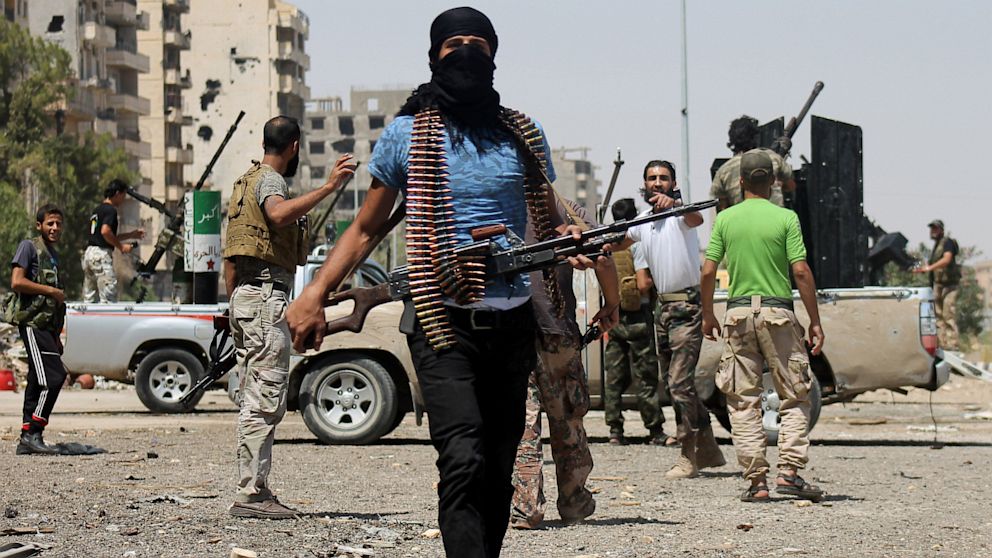'This Week' Transcript: Crisis in the Middle East

CAIRO, August 25, 2013— -- A rush transcript of "This Week with George Stephanopoulos" airing on Sunday morning, August 25, 2013 on ABC News is below. This copy may not be in its final form and may be updated. All excerpts must be attributed to ABC News "This Week with George Stephanopoulos"
MARTHA RADDATZ, HOST: Good morning from Cairo.
Welcome to This Week.
Flashpoint: Middle East. Breaking this morning, U.S. warships in position for a possible strike on Syria. Accuse of using chemical weapons, has Syria finally crossed a red line?
(BEGIN VIDEO CLIP)
BARACK OBAMA, PRESIDENT OF THE UNITED STATES: It is very troublesome.
(END VIDEO CLIP)
RADDATZ: Are we on the brink of war?
Plus in Egypt, anarchy on the streets of this key U.S. ally. We're here on the ground and anchoring from the region with all the breaking details.
And 50 years later, remembering a day that changed the nation.
(BEGIN VIDEO CLIP)
What was at stake that day?
UNIDENTIFIED MALE: The future of America.
(END VIDEO CLIP)
RADDATZ: Was Dr. King's dream fulfilled? The powerhouse roundtable weighs in on that and all the week's politics. It's all right here this Sunday morning.
ANNOUNCER: From ABC News, a special edition of "This Week" with Martha Raddatz in Cairo and Jonathan Karl in Washington starts right now.
RADDATZ: Good morning. George is off today. We're reporting from a region on the brink, and all eyes are on Syria, where an apparent chemical weapons attack could lead to American military action.
Here in Cairo, we're just 100 miles from the Mediterranean Sea where U.S. warships are now at the ready.
(BEGIN VIDEOTAPE)
RADDATZ: This morning, officials tell ABC News that U.S. navy destroyers now in the Mediterranean could be used to carry out limited military strikes, cruise missile strikes, designed to deter or prevent another chemical attack by the Assad regime if this week's suspected attack is verified.
OBAMA: This is clearly a big event of grave concern that starts getting to some core national interest that the United States has.
RADDATZ: President Obama has so far been unwilling to militarily intervene in Syria, despite the deaths of more than 100,000 people and a vow he made more than one year ago.
OBAMA: That's a red line for us. And that there would be enormous consequences if we start seeing movement on the chemical weapons front.
RADDATZ: With that line possibly crossed, Senator John McCain fears U.S. credibility is now at stake.
SEN. JOHN MCCAIN, (R) ARIZONA: You can't look at those pictures without being deeply moved. Are we going to just let that go on?
(END VIDEOTAPE)
RADDATZ: So how will President Obama respond? The White House is considering a number of options. And for more on that, let's bring in Jonathan Karl in Washington. Jon, what can you tell us?
JONATHAN KARL, ABC NEWS CORRESPONDENT: Martha, the president has ordered his national security team to draw up options for a possible military strike on Syria. One official tells me there is, quote, a strong suspicion that the Assad regime is responsible for what appears to be a large-scale chemical attack on civilians, including many children.
The intelligence community is still gathering evidence, but the senior official tells me there are already strong indications implicating the Syrian government. The attack was on rebel-held territory and apparently done using rockets, rockets that the rebels do not possess.



